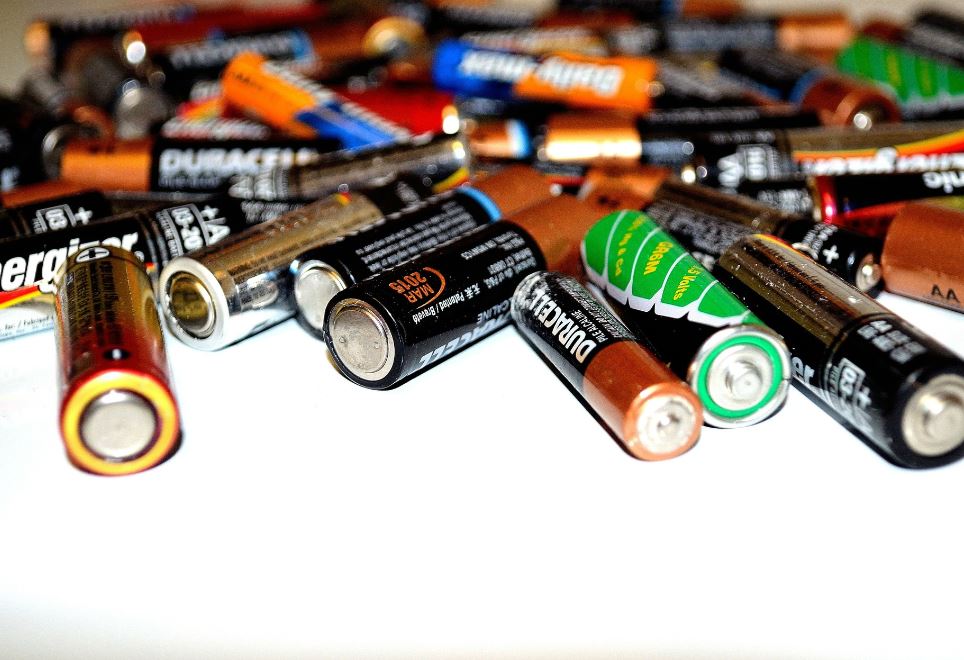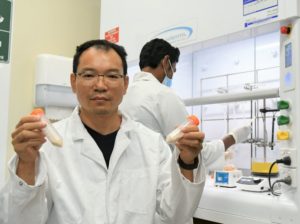
Fully organic rechargeable household batteries are an ideal alternative to traditional metal-based batteries, in particular for reducing pollution to landfill and the environment.
Now researchers at Flinders University, with Australian and Chinese collaborators, are developing an all-organic polymer battery that can deliver a cell voltage of 2.8V – a big leap in improving the energy storage capability of organic batteries.
“While starting with small household batteries, we already know organic redox-active materials are typical electroactive alternatives due to their inherently safe, lightweight and structure-tunable features and, most importantly, their sustainable and environmentally friendly,” says senior lecturer in chemistry Dr Zhongfan Jia, a research leader at Flinders University’s Institute for Nanoscale Science and Technology.

In collaboration with Dr Kai Zhang from the Zhejiang Sci-Tech University in China, Dr Jia’s research team now aims to make a fully biodegradable battery with a cell voltage of more than 3.0V and capacity to above 200mAh/g through the innovative organic electrode materials and innovative structure design.
Research, development and commercialisation could take years, but the need for renewable alternatives is rising. While traditional lithium-ion batteries have enabled a proliferation of portable devices and even electric vehicles, rising demand for materials such as lithium, cobalt and other mineral ore resources have led to a range of social and environmental impacts including the safe usage and non-hazardous disposal of batteries.
Developing rechargeable batteries from ethically sourced, sustainable materials for on-demand requirements is a potential alternative. Research around the world is focusing on improving fully organic batteries cell voltage and capacity and durability of the materials to contribute to recycling in a circular economy with affordable and efficient batteries.
“Although the capacity needs further improvement, our work shows the promise of developing high-voltage, fully organic batteries with a judicious electrode design,” Dr Jia says.
The article, An All-Organic battery with 2.8 V output voltage (2022) by Shangxu Jiang, Wenbiao Li, Yuan Xie, Xiaoqing Yan, Kai Zhang and Zhongfan Jia has been published in Chemical Engineering Journal DOI: 10.1016/j.cej.2022.134651.

